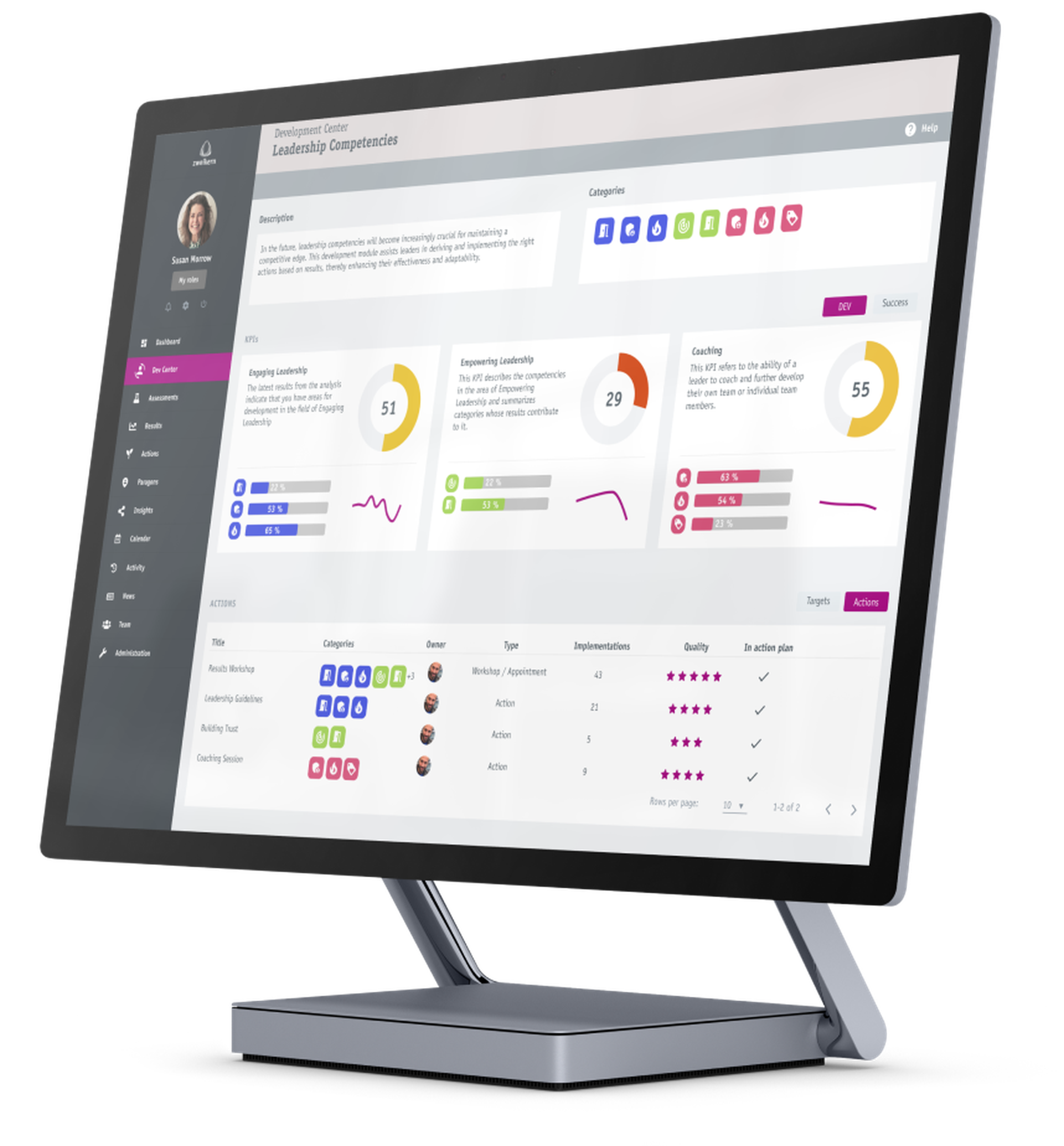Mit der Ist-Analyse zur Grundlage für Entwicklung
Mittels zweikern Analytics rücken die definierten Ziele und KPIs in den Fokus und werden in einer ersten Analyse überprüft - zweikern schafft Fakten und damit die Grundlage für Entwicklung.

Was wir in dieser Phase erreichen
Organisationen in zweikern Analytics
Komplexität in der Organisationsstruktur stellt für uns kein Hindernis dar, sondern ist eine Herausforderung, die wir gerne annehmen. Mit zweikern Analytics haben wir eine Plattform geschaffen, die in der Lage ist, auch die komplexesten Unternehmensstrukturen präzise abzubilden. Sobald die Analyseinhalte aus der ersten Phase implementiert sind, können wir Ihr Unternehmen in seiner Gänze im System erfassen. Von Abteilungen über Teams bis hin zu einzelnen Rollen und Zuständigkeiten – alles findet seinen Platz.
Das Onboarding in das Projekt
Die Sensibilisierung der Projektmitarbeitenden ist eine unerlässlicher Teil des Onboarding-Prozesses, der den Grundstein für eine effiziente und erfolgreiche Projektarbeit legt. Hierbei nehmen wir uns die Zeit, nicht nur die technischen Aspekte von zweikern Analytics zu erklären, sondern auch die übergeordneten Zielsetzungen des Projekts zu vermitteln. Wir gehen dabei auf sämtliche Fragen ein und lassen keinen Raum für Unklarheiten.
Durch die klare Darstellung der Vorteile, die zweikern Analytics in den unterschiedlichen Projektphasen bietet, stärken wir das gemeinsame Verständnis und die Motivation für die anstehenden Aufgaben. Dieses detaillierte Onboarding ermöglicht eine transparente Kommunikation und fördert ein hohes Maß an Engagement, was wiederum entscheidend für den Erfolg des gesamten Projekts ist.

Die Analyse des Ist-Stands mittels zweikern Analytics
Veränderung beginnt mit dem Verstehen des Status quo, und genau dafür ist die erste Analyse mittels zweikern Analytics konzipiert. Wir nutzen den im Vorfeld sorgfältig entwickelten Fragebogen, um einen detaillierten Einblick in die aktuellen Strukturen, Prozesse und Herausforderungen Ihres Unternehmens zu gewinnen. Der speziell für dieses Projekt angefertigte Fragebogen ermöglicht es, spezifische Entwicklungsfelder präzise zu identifizieren.
Was zweikern Analytics besonders leistungsfähig macht, ist seine vollautomatische Umsetzungs- und Auswertungsfunktion. Die Daten werden in Echtzeit erfasst und analysiert, was eine schnelle und fundierte Entscheidungsfindung ermöglicht. Dies ist der entscheidende erste Schritt, um den Veränderungsprozess effizient und zielorientiert zu steuern.

Alle Funktionen von zweikern Analytics
Nachfolgend finden Sie alle Informationen zu zweikern Analytics und eine Übersicht der vorhandenen Funktionen, die Sie im Rahmen Ihrer Arbeit nutzen können.

Nächste Phase: Fokussierte Entwicklung
Mit zweikern Analytics werden die Daten der Ist-Analyse verarbeitet und auf Basis von Fakten individuelle Entwicklungsfelder abgeleitet. zweikern begleitet die Projektbereiche und setzt gezielte, effektive Entwicklungsmaßnahmen um.
